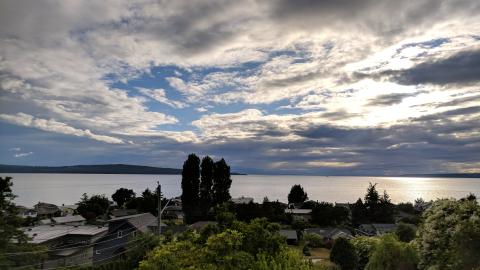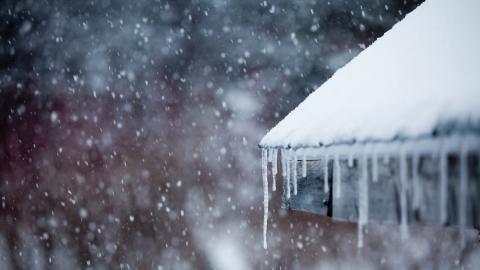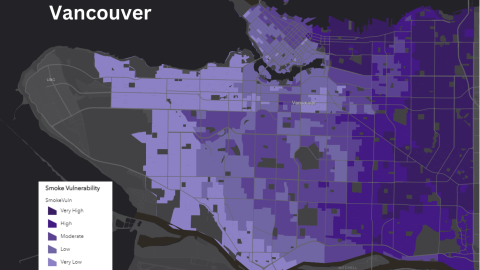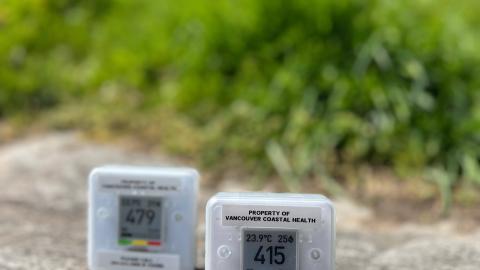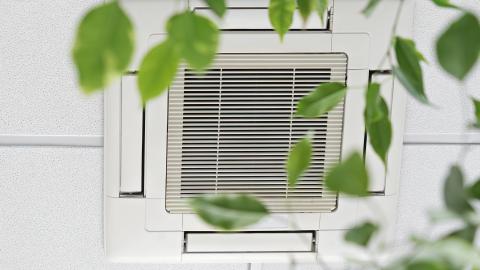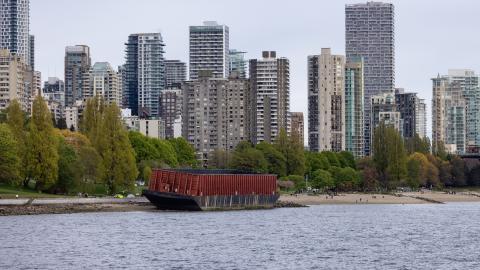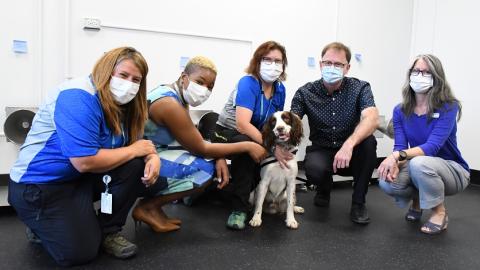Information bulletin
Public Health officials urge Lower Mainland residents to remain vigilant in taking precautions during high temperatures
LOWER MAINLAND, B.C. – Medical Health Officers for both Vancouver Coastal Health (VCH) and Fraser Health (FH) are advising the public that the Extreme Heat Alert is no longer in place for the Lower Mainland; however, a less severe heat warning continues to be in effect.
The criteria for an Extreme Heat Alert is based on the temperature at YVR or Abbotsford as measured at 14:05 pm daily, averaged with the following day's maximum temperature. Despite high temperatures forecast by Environment Canada for the days ahead, it is not anticipated to reach the Extreme Heat Alert temperature threshold.
A Heat Warning still remains in effect across the Lower Mainland, and Medical Health Officers are urging members of the public to continue taking precautions to ensure they protect both themselves and those who are vulnerable from the health risks associated with sustained high temperatures.
Based on previous heat events, the anticipated temperatures are proven to cause negative health outcomes among Lower Mainland residents who may not be acclimatized to temperatures in this range and may not have ready access to adaptations, such as air conditioning. Heat stress can pose an immediate danger to health. Symptoms of heat-related illness can include thirst, dizziness, confusion, weakness and fainting or collapsing, including loss of consciousness.
High indoor temperatures can be particularly dangerous for older adults and those with chronic health conditions. Medical Health Officers are again strongly advising Lower Mainland residents to take precautions to protect themselves and others. Important steps people can take in the days ahead include:
-
Conduct regular checks on vulnerable people- Individuals who live alone, particularly seniors, are at high risk of heat-related illness. Check in regularly to ensure they have no symptoms.
-
If you identify signs of illness, assist in moving them to a cooler indoor or shaded space, support them in getting hydrated and seek medical assistance.
-
If urgent medical support is required, call 9-1-1 without delay.
-
-
Stay hydrated- Drink cool non-alcoholic beverages (preferably water) irrespective of your activity intake- don't wait until you are thirsty. If your doctor generally limits the amount of fluid you drink or you take water pills, ask about increasing the amount of water you can drink while the weather is hot.
-
Keep pets and children cool- Never leave children or pets alone in a parked car. Temperatures can rise to 52°C (125°F) within 20 minutes in an enclosed vehicle when the outside temperature is 34°C (93°F).
-
Access air conditioned spaces- Seek out an air-conditioned facility (such as a shopping centre, library, community centre, restaurant, or a residence of friends or family).
-
Use public splash pools, water parks or pools or take a cool bath or shower.
-
At high temperatures, fans alone are not effective. Applying cool water mist or wet towels prior to sitting in front of a fan is a quick way to cool off.
-
-
Dress for the weather- Wear loose, light-weight clothing. Protect yourself from the sun by wearing a wide-brimmed hat and sunglasses.
-
Keep your home cool- Open windows, close shades, use an air conditioner (if you have one) and prepare meals that do not require an oven.
-
Avoid sunburn- Stay in the shade or use sunscreen with SPF 30 or more.
-
Avoid tiring work or exercise in the heat- If you must exercise or conduct strenuous work, drink two to four glasses of non-alcoholic fluids each hour. Limit day time outdoor activity to early morning and evening time.
-
Seeking care- For critical, life-threatening conditions, please call 9-1-1 or go to the nearest emergency department. This includes anyone experiencing difficulty breathing, shortness of breath or chest pain.
-
For other non-life-threatening matters, there are a number of options to seek care during the summer. Urgent and Primary Care Centres (UPCCs) are open evenings and weekend, seven days a week and provide care for unexpected, non-life threatening health concerns that require treatment within 48 hours.
-
If you are unsure where to seek care, please call 8-1-1 or your family physician.
-
Air Quality
B.C. wildfires are common during the summer months, resulting in poorer quality air. As air quality can change quickly due to warmer temperatures and smoke from wildfires, we are urging people in our communities to minimize exposure to smoky air.
Although wildfire smoke is different from air pollution caused by traffic or industry, it is also harmful to human health, especially in older adults, infants, young children, pregnant women and people with chronic conditions such as asthma, chronic obstructive pulmonary disease, and heart disease.
Help keep yourself and your loved ones safe by taking the following steps now, ahead of any potential exposure to smoky air:
-
Check your medications, especially rescue medications for breathing
-
Keep windows and doors closed if possible without overheating
-
Use a portable HEPA air cleaner
-
Stay hydrated
-
Reduce time spent outdoors and reduce strenuous activities, because breathing harder means inhaling more smoky air
-
Pay attention to air quality reports, especially the air quality health index
-
Spend time in a home or community space that has air conditioning, which will have cleaner air. Look for designated cleaner air spaces in your community with enhanced air filtration. Buildings with air conditioning such as cooling centers will have cleaner air.
People with pre-existing medical conditions should take extra precautions during this time, including monitoring for symptoms and keeping rescue medications with them when out. Common symptoms can include lung irritation, eye irritation, runny nose, sore throat, headaches, and mild cough. If you experience more severe symptoms such as shortness of breath, severe cough, dizziness, chest discomfort, heart palpitations, or wheezing, seek medical attention immediately.
Get Informed
-
Visit VCH.ca or fraserhealth.ca/sunsafety for more information about the health impacts of heat.
-
For more information on heat-related illness, call HealthLink BC at 811.
-
Fraser Health Virtual Care allows you to connect with a health professional. You can call 1-800-314-0999 or use the web chat from 10 a.m. to 10 p.m. seven days a week at www.fraserhealth.ca/virtualcare
Vancouver Coastal Health is responsible for the delivery of $4.1 billion in community, hospital and long-term care to more than one million people in communities including Richmond, Vancouver, the North Shore, Sunshine Coast, Sea to Sky corridor, Powell River, Bella Bella and Bella Coola. VCH also provides specialized care and services for people throughout B.C., and is the province's hub of health-care education and research.
Fraser Health is responsible for the delivery of hospital and community-based health services to over 1.8 million people in 20 diverse communities from Burnaby to Fraser Canyon on the traditional territories of the Coast Salish and Nlaka'pamux Nations. Our team of nearly 40,000 staff, medical staff and volunteers is dedicated to serving our patients, families and communities to deliver on our vision: Better health, best in health care.
CONTACT:
Vancouver Coastal Health media line: 604.202.2012 | Fraser Health media line: 604.613.0794






